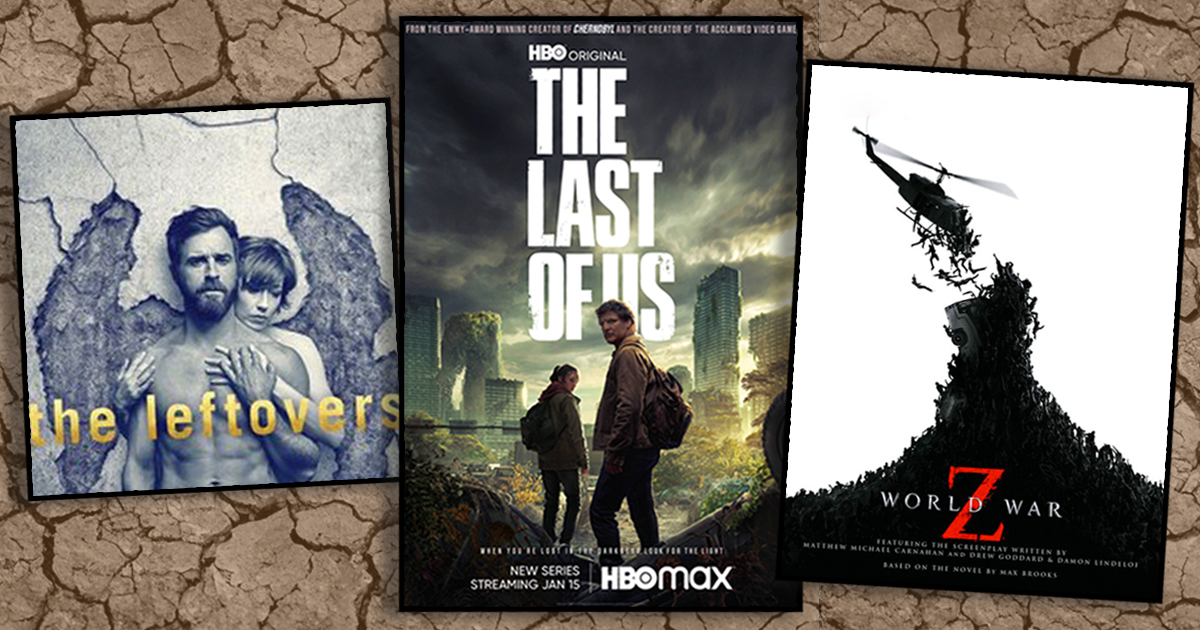I’ve spent much of my adult life considering how popular culture reflects and dialogues with society’s concerns, preoccupations and fears. When issues arise in our communities, making headlines and sparking conversations and debate, popular culture—whether television shows, movies or comics—produces content that reflects those concerns. The best content portrays the complexity of the issue, creating space to ask questions, avoiding pat answers and oversimplification.
One type of story that continues to be popular with audiences is the post-apocalyptic narrative. It’s fascinating to consider whether the popularity of this genre will continue now that we have come through a once-in-a-generation pandemic and, if so, how it may adapt given our recent experience.
The fascination with the end of the world and the aftermath of global catastrophes has gripped the human imagination for centuries. There are plenty of examples of religious apocalyptic literature, notably sections of the Book of Daniel and the Book of Revelation in the Judeo-Christian tradition. Behind these sacred texts and fictional reimagining lies a common concern: the fragility of our civilization and either the hope—or fear—of the end of that civilization.
Fiction writers have created and developed a rich and diverse genre known as post-apocalyptic fiction. This genre has evolved significantly over time, from its humble beginnings in Mary Shelley’s The Last Man to novels such as Cormac McCarthy’s The Road or, in the Christian world, the Left Behind series by Tim LaHaye and Jerry B. Jenkins, to contemporary television shows such as HBO’s The Leftovers and The Last of Us. At the heart of these narratives lies the exploration of ethics, human resilience and mortality.
Most people trace the origins of the post-apocalyptic genre to Mary Shelley’s The Last Man (first published in 1826). Set in the 21st century, the novel follows Lionel Verney as he navigates a world devastated by a global pandemic. Shelley’s exploration of societal collapse and the struggles of the last survivor laid the foundation for the genre’s core themes. Although not as well-known as her much more famous Frankenstein, The Last Man influenced several writers with its speculation about the precariousness of our world.
The mid-20th century saw further development in the genre, with authors introducing diverse means to bring about the end of civilization. From H.G. Wells’ alien invasion in The War of the Worlds to Richard Matheson’s exploration of supernatural forces in I Am Legend, these stories introduced new layers to the genre. Alien invasions challenged humanity’s dominance, while supernatural elements added an eerie and mystical dimension to the genre.
In the late 20th century, the nuclear fears of the Cold War era cemented post-apocalyptic fiction’s popularity. Novels and films depicted the haunting aftermath of nuclear war, emphasizing the ethical dilemmas that arise amidst the ashes of civilization. In Christian circles, these same fears influenced Hal Lindsey’s incredibly popular interpretations of Revelation, The Late Great Planet Earth.
The genre has taken on new life with the rise of zombies and pandemics as apocalyptic catalysts. Max Brooks’ World War Z and its film adaptation, as well as The Walking Dead, tap into contemporary fears and explore how humanity copes with a world overrun by the undead. The theme of infection and pandemic has gained even more relevance in light of recent global health crises, adding an unsettling sense of realism to the genre.
Contemporary television has also embraced post-apocalyptic fiction with shows such as The Leftovers, exploring the psychological aftermath of an unexplained event where a portion of the population disappears. Left Behind delves into the theological implications of a rapture-like event, while the video game adaptation The Last of Us presents a world ravaged by a fungal pandemic, showcasing the lengths individuals will go to survive and the relationships formed in the direst of circumstances.
Throughout its evolution, post-apocalyptic fiction has provided a canvas for writers to explore the human condition, addressing themes of hope, despair, morality and the indomitable will to survive in the face of overwhelming odds. From pandemics and alien invasions to supernatural forces and zombies, how authors bring about the end of civilization in post-apocalyptic fiction is as varied as the genre itself.
For Christian readers and viewers, who put their faith in an unchanging and all-powerful God, I think it’s important to try and understand something of the concerns and fears that have made this genre so popular and influential. It reminds us of our vulnerability—that however much we think we are masters of our fate, there are forces at work beyond our control.
Dr. Michael Boyce is the director of program implementation at the College for Officer Training in Toronto.










Interesting views with a broad spectrum of references to apocalyptic writing and its interpretation from various cultural perspectives. Brave New World by Huxley and 1984 by Orwell also give us insight into two possible scenarios in the world to come. Orwell sees a state dominating us and controlling us with technology reducing our humanity to fear based existence. Huxley conversely envisions a world that is so focused on enjoyment, pleasure and hedonism that we expose ourselves to society and the powers that be, while we are lulled into an existence of being less than human with our focus on life being pleasure. Neither of these views are positive and both diminish the reality of our existence as humans made in the image of God. Thank for the thought-provoking reflection.